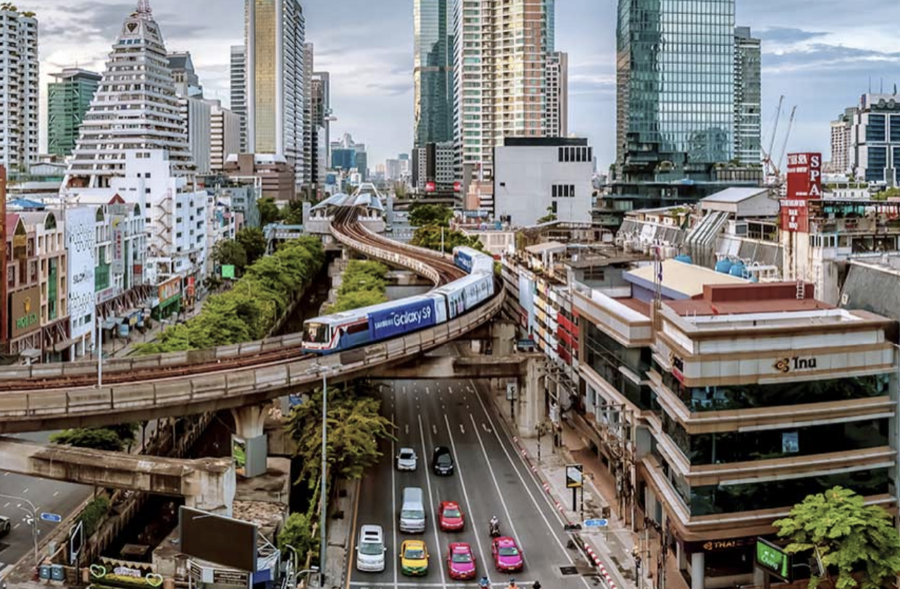How to Emigrate to Thailand With a Long Term Visa

Emigrating to Thailand with a long-term visa is like assembling a complex jigsaw puzzle where every piece must fit precisely to complete the beautiful picture. You’ve likely heard tales of the Land of Smiles’ welcoming culture and affordable cost of living, which might have nudged you to consider making it your new home.
As you ponder this life-changing move, you must navigate through a labyrinth of visa options, each with its own set of rules and requirements. Whether you’re eyeing a retirement visa, contemplating a business venture, or planning to unite with loved ones, it’s crucial to understand the legal frameworks that will allow you to stay long-term.
In the following sections, you’ll discover the keys to unlock the doors to a smooth transition into Thai society, but remember, the path is strewn with bureaucratic intricacies that demand attention to detail.
Keep in mind that a successful move hinges on your ability to foresee the challenges ahead and prepare accordingly, as the process can be as unpredictable as a monsoon season in the tropics.
Understanding Long-Term Visa Options
To settle in Thailand for the long haul, you’ll need to navigate the variety of long-term visa options available, each tailored to different needs and circumstances.
If you’re eyeing retirement under the sun, the Retirement Visa, or Non-Immigrant O-A visa, is your go-to, requiring you to be over 50 and meet financial stipulations.
For those marrying a Thai citizen, the Marriage Visa offers a pathway to a life together in Thailand.
Entrepreneurs and business professionals might opt for the Business Visa, which caters to those looking to work or start a business. Another solid option for long-term residency in Thailand is the Elite Visa, which has not been rebranded to the Thailand Privilege Visa (Source)
And if you’re planning to study or do research, the Education Visa will fit your academic pursuits.
It’s crucial to choose wisely; your visa determines your legal status and the benefits you’ll enjoy.
Meeting the Visa Requirements
Once you’ve identified the right long-term visa for your stay in Thailand, you’ll need to ensure you meet all the specified requirements to secure it. Generally, this means gathering documents like your passport, proof of funds, and possibly a health certificate.
For instance, if you’re eyeing a retirement visa, you must be at least 50 years old and meet the financial criteria, which could involve a monthly pension or a bank deposit.
Don’t forget, the specific visa type dictates the exact paperwork. You might need to show a work contract, business registration, or marriage certificate, depending on your situation. It’s crucial to check the latest guidelines from Thai immigration to avoid any hiccups.
Get your documents in order, and you’re one step closer to your Thai adventure.
Preparing Your Visa Application
Gather your documents meticulously, as a well-prepared visa application is key to a smooth transition to life in Thailand. You’ll need to compile the necessary paperwork, which typically includes:
- A passport valid for at least six months beyond your intended stay
- Recent passport-sized photographs
- The completed visa application form
Don’t forget to include proof of income or financial means, which demonstrates your ability to support yourself during your stay.
Double-check the specific requirements for the type of long-term visa you’re applying for—be it retirement, marriage, or business. Ensure each document adheres to the Thai consulate’s guidelines. It’s crucial that you provide accurate and up-to-date information to avoid delays or rejections.
Once everything’s in order, you’re ready to submit your application.
Navigating the Application Process
Having assembled all your required documents, the next step is navigating the application process for your long-term visa to Thailand.
Start by submitting your application through the Royal Thai Embassy or Consulate in your home country. You’ll typically need to complete an application form, present your passport, and provide the necessary supporting documents, which may include proof of income, a medical certificate, and a criminal record check.
It’s crucial to adhere to the specific requirements outlined by the consulate, as any discrepancies can delay your application. Once submitted, the processing time can vary, so plan accordingly. Remember to check the embassy’s website for the most up-to-date information, and don’t hesitate to reach out to them directly for any clarification.
Being meticulous during this phase can save you time and stress later on.
Settling in Thailand Successfully
Secure your accommodation early to ensure a smooth transition into your new life in Thailand. Once you’ve decided on a place to live, familiarize yourself with the local area. Find out where the nearest supermarkets, hospitals, and transportation links are. It’ll make your daily life much easier.
Next, immerse yourself in the culture. Learn the basics of the Thai language; it shows respect and will help you connect with locals. Don’t forget to set up your banking and health insurance—essential steps for a hassle-free stay.
Lastly, be patient with yourself. Adapting to a new country takes time. Embrace the experience, and you’ll soon find your rhythm in the Land of Smiles.
Frequently Asked Questions
Can I Own Property in Thailand as a Long-Term Visa Holder, and Are There Any Restrictions or Special Procedures I Must Follow?
You can’t own land in Thailand, but you’re able to purchase condominiums outright, provided that foreign ownership in the building doesn’t exceed 49%.
You’ll need to follow specific legal processes for acquisition.
How Does Emigrating to Thailand Affect My Tax Status, and What Are the Implications for My Income From Abroad?
When you move to Thailand, your tax status changes. You’ll likely pay taxes on income earned there but might avoid double taxation on foreign income due to treaties.
Check local laws for specifics.
Are There Any Specific Health Care Considerations or Mandatory Insurance Requirements for Long-Term Visa Holders in Thailand?
Yes, you’ll need health insurance with at least 400,000 THB inpatient and 40,000 THB outpatient coverage to secure a long-term Thai visa.
It’s a mandatory requirement for your stay.
What Are the Educational Options for My Children if I Emigrate to Thailand on a Long-Term Visa?
Your children can attend international schools, private institutions, or local Thai schools. These schools offer diverse curriculums such as American, British, or the International Baccalaureate. This ensures that your children can continue their education seamlessly in Thailand.
Can My Long-Term Visa Status Be Revoked or Downgraded, and What Are the Common Reasons for This to Happen?
Yes, your long-term visa can be revoked or downgraded.
Common reasons include:
- Violating visa conditions
- Overstaying
- Criminal activity
- Failing to meet financial requirements set by Thai immigration authorities.
Conclusion
Now that you’ve got a grip on long-term visa options, met the requirements, prepped your application, and navigated the process, you’re on your way to settling in Thailand.
Remember, it’s all about staying organized and patient. Embrace the local customs, make connections, and enjoy your new adventure.
Your Thai dream is just within reach, so pack your bags, say your goodbyes, and get ready to start a thrilling chapter in the Land of Smiles!

